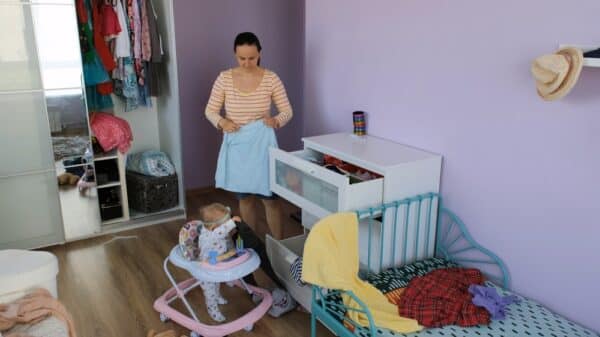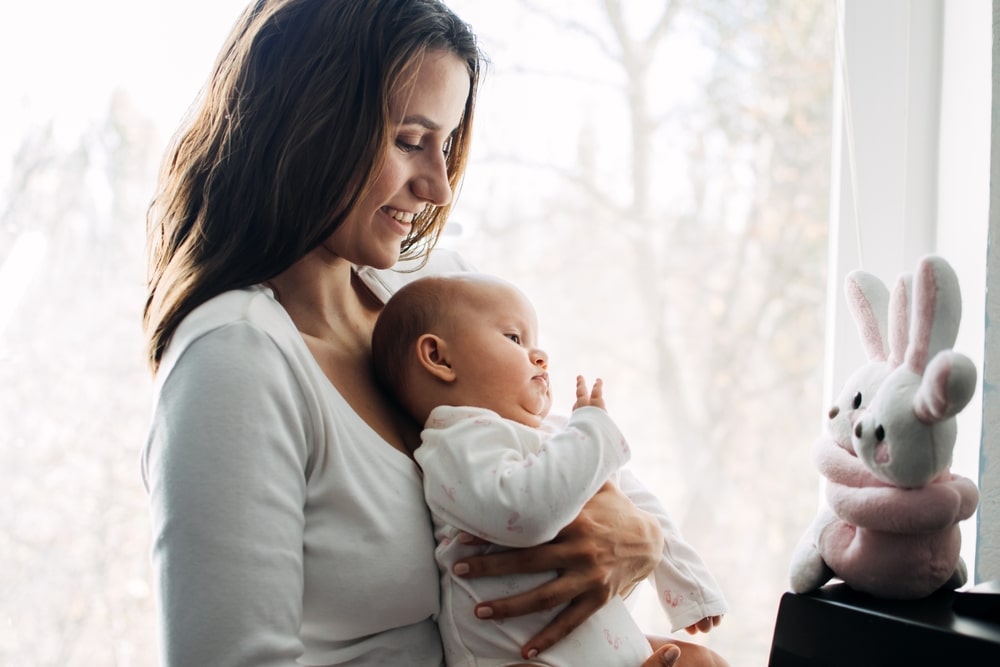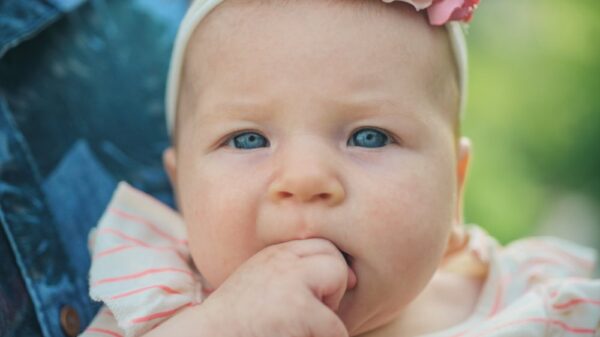One of the most challenging experiences for a mother is witnessing her baby’s distress without understanding the cause. Oftentimes, the reasons may be as straightforward as hunger, a diaper change, or a nap—basic needs that can usually be quickly alleviated with a comforting hug. However, there are instances where our little ones are trying to communicate something more complex, and our reactions to their signals can significantly influence their mental well-being.
Infant mental health is a crucial yet frequently neglected subject. Even among well-intentioned mothers, it is a common fallacy that mental health considerations only pertain to older children. However, experts contend that mental health begins in utero, and as mothers, we have more impact on our children’s psychological development than we might comprehend.
What is Infant Mental Health?
Much like adults, infants can experience good or poor mental health; the key distinction is that a young child’s ability to understand and articulate their emotions is still developing. Specialists suggest that even before children acquire the verbal skills to express their feelings, their emotional experiences—and our responses to those emotions—are registering significant messages in their brains.
A study conducted in 2022 revealed that nearly 1 in 5 children in the US between the ages of 3 and 17 have some form of mental, emotional, developmental, or behavioral disorder. However, far less focus is given to children under the age of 3, a critical phase for emotional development that has, until now, received insufficient attention.
Dr. Jean Clinton, a psychiatrist specializing in infants and a clinical professor at McMaster University’s department of psychiatry and behavioral neurosciences, is one of the leading voices advocating for enhanced understanding in this realm.
Dr. Clinton notes that the emphasis on mental health often skews toward adolescents and middle childhood, primarily because the consequences for older children can be quite severe. However, the groundwork for solid mental health is established much earlier.
“People often assume babies are simply adorable and innocent, believing they cannot possibly face mental health challenges, let alone have mental health needs,” she observes. “Yet, a baby’s brain is constructed largely through experiences, and there is a substantial amount happening both during pregnancy and in the early years.”
It All Begins in the Womb
During pregnancy, it’s natural for mothers to pay close attention to their diet, exercise, and overall emotional state. However, in addition to monitoring their baby’s physical growth, it’s essential to consider their mental development as well.
Beverly Gould, Program Director at the Child Centre of NY’s Macari Perinatal Intensive Outpatient Program, emphasizes that both mother and child share the same physical environment and experiences during pregnancy.
“Children are influenced by their intrauterine surroundings—this includes the effects of maternal substance use as well as the stressors from a toxic domestic environment, physical health concerns, or mental health challenges,” she explains.
Dr. Clinton adds that significant stress—beyond the everyday pressures—can begin to shape a baby’s mental health even before birth.
“Stress leads to the release of chemicals such as cortisol, which, in elevated levels, are known to enter the fetal system and can impact the development and shaping of the baby’s brain,” she remarks. “It’s not solely our genetic makeup that defines us, but rather the intrauterine environment has a monumental influence.”
If this revelation raises some concern, try not to be alarmed. While high stress levels can influence development, the brain is remarkably resilient. “Even if a mother experiences a high-stress pregnancy, neuroplasticity and the chance for recovery through attentive parenting and fostering secure, nurturing environments can immensely benefit the infant. Being observant and mindful is a valuable gift,” reassures Dr. Clinton.
What’s Happening in Your Infant’s Brain?
After birth, the process continues. Research indicates that during the foundational years of life, early life experiences significantly shape the developing brain, influencing long-term health, behavior, and learning. Dr. Clinton, who co-authored this research, explains that in the first three years, an infant begins to form their understanding of the world and how to respond to it.
“Many are unaware of this,” she notes. “During the time when young families often experience the highest levels of stress due to the demands of caring for a newborn while juggling work, those are the moments when children require intense, loving, focused attention.”
Even in the earliest months, an infant is affected by experiences such as being comforted or being left alone. These interactions—whether beneficial or harmful—create pathways in the brain.
“In the first year, we should strive to cultivate an ‘external womb’ by fostering face-to-face interactions, soothing them as needed, interpreting their signals with sensitivity, and establishing a safe, nurturing environment for the child,” Dr. Clinton suggests.
A child’s emotional capacity begins to register earlier than many might assume. According to the American Psychological Association, tots can start to grasp moral emotions like embarrassment and empathy around 18 months of age, with further emotions like guilt, pride, and shame developing soon after.
How Can You Enhance Your Baby’s Mental Health?
A healthy, happy baby typically exhibits contentment most of the time and enjoys being around others, according to Dr. Clinton. However, if a baby displays signs of distress, it’s crucial to address it promptly.
“A baby’s primary means of communication is through crying—it’s their way of indicating dissatisfaction. First, ensure the baby is safe and well-fed, then strive to understand their needs,” she recommends.
Gould points out that positive emotional interactions may include skin-to-skin contact, gentle swaddling, and providing a warm, secure environment for the baby to safely explore.
Other straightforward ways for parents to bond with their infants include making eye contact, talking, reading, and singing to them, as these activities promote emotional connections. Frequent hugs also serve to provide essential comfort. Gould encourages parents to establish a consistent daily routine to instill a sense of security and alleviate anxiety for their babies.
Additionally, it is vital to dedicate quality time to children and respond to their unique signals. For instance, if a baby shows interest in something, parents should encourage that exploration, and if they’re tired, it’s essential to allow them to rest, suggests Dr. Clinton.
As infants become more aware of their emotions, it’s beneficial to normalize those feelings, advises Dr. Maura Francis, a postdoctoral fellow specializing in child and family clinical psychology at the Manhattan Psychology Group.
“Consistently acknowledging and normalizing emotions can assist with coping and problem-solving, creating a reliable and predictable foundation for nurturing emotional intelligence,” she concludes.
“This allows a child to develop healthy ways to manage their own emotions,” she explains. “It also alleviates the pressure on the child to independently adapt as they progress through diverse life experiences while feeling supported.”
The Connection Between Infant and Parent Mental Health
One crucial aspect of nurturing your child’s mental health is to focus on your own mental wellbeing, asserts Michael Gouterman, mental health manager for the Early/Head Start Network at Start Early. This nonprofit organization aims to improve quality early education and care for families with young children to help bridge the opportunity divide. “By enhancing your own self-regulation skills, you create a more stable and consistent environment where your child can learn to co-regulate effectively from an early age. Your physical and emotional wellbeing significantly affects their emotional regulation skills.”
Gouterman emphasizes the importance of developing self-awareness to identify your own emotional triggers and adopting effective self-regulation techniques. “Doing this establishes a solid groundwork for teaching your child how to handle their emotions successfully,” he states.
Recognizing Potential Mental Health Issues in Infants
There are times when an infant’s mental health may require closer attention. However, it’s essential to understand that this does not imply any wrongdoing on your part as a parent or caregiver. There could be indicators suggesting that various factors are hindering your child, and additional assistance may be beneficial for their wellbeing.
Dr. Clinton advises that while keeping an eye on your child’s emotional state is vital, a concerning symptom does not always indicate a problem.
“It may simply mean that supporting them in revealing their best self is somewhat more complex,” she notes. Be assured that help is accessible, whether through discussions with your pediatrician or consulting a child-focused therapist.
Here are some warning signs to be vigilant about regarding infant mental health, though many of these behaviors can also be typical for babies. Pay close attention if these patterns become consistent.
- Difficulty being soothed
- Avoidance of being held and lack of eye contact
- Constant fussiness and persistent crying
- Irregular sleep patterns
- Challenges with feeding
- Exhibiting signs of anxiety, tension, distress, or fear
- Withdrawal from social interactions
A Message from Motherly on Nurturing Infant Mental Health
Being observant of your baby’s mood, behavior, and temperament can greatly assist you in meeting their needs. However, if anything feels amiss or if you have concerns about your child, seek help early, and remember that it is never too late to ask for support.
While it’s easy to concentrate solely on our babies’ needs, ensuring our own mental health as parents and caregivers is equally paramount. Struggling with mental health can hinder your ability to interpret your baby’s signals. If you’re facing ongoing feelings of sadness, remember help is available; reaching out to your birth provider or primary care physician is an excellent first step.
Image Source: Iryna Imago / Shutterstock



































